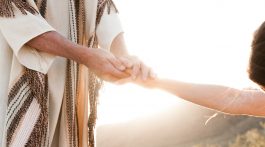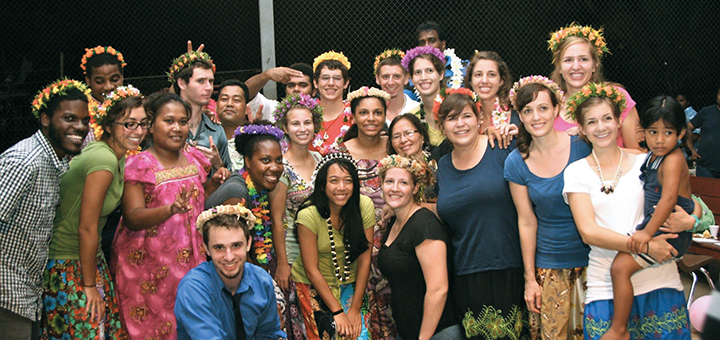Each year the students of Chris Blake’s sophomore-level editing class at Union College produce the February issue of OUTLOOK. Since our overall theme for 2014 is discipleship, we asked the students to share, through their own experiences, what discipleship means to them.
The following article was written by Carl Dupper, a senior business administration major from Loveland, Colorado. To view the print version (designed by Melissa Ratter) see page 6 of the February 2014 issue, available at outlookmag.org/print-issues.
[hr]
So, what now?
We had tried everything. Sun-drying branches. Starting with fluff from bushes. Nothing would light on fire. As a native of dry Colorado, being in the fifth wettest location on earth (Pohnpei, Micronesia) really affected my ability to create fire. It rained every day, and there was not a single piece of wood, shrub, or coconut that wasn’t soaked with water and covered in moss.
“How are we going to cook any of our food if we don’t have a fire?”
I’m starving!
As stomachs rumbled, tensions grew. Our group of 20 student missionaries were all stranded on an outer island the size of a football field, with no idea how to get a fire going. We all stood around the fire pit, dumbfounded, no one daring to try again for fear of another watery rejection.
In my peripheral vision I saw a pair of curious eyes. Looking over I saw Urchin, a man with leather for skin and a beard that would make Paul Bunyan look like an adolescent. He was a local Pohnpeian who owned and lived on Black Rock, the island where we were staying. Hurrying over, he motioned his hand toward a machete one of the missionaries had.
Like this.
Urchin picked up an old, rotting coconut and with one enormous swing cracked it in half. He then began to pull the completely dry fibers from inside the coconut. After he had brought a few other coconuts to their deaths, he grabbed our lighter and lit the newly-found fuel. After blowing some air into the small flame, there was a fire roaring large enough to dry the wet sticks we had, and then burn them. Urchin smiled, gave us a thumbs up, and strolled back over to his chicken-infested shanty.
At this point each of our stomachs were mounting a rebellion on our bodies if we didn’t feed them soon, and the pot of rice/soot/sand we had cooking on the fire was beginning to look more like turkish delight.
When the rice was finished, we looked around.
“Where are the plates?”
“Oh no.”
“I don’t care. Just put it in my hands, I’m starving! . . . Ooouuch! That’s hot!!”
Looking over toward Urchin’s shanty, I saw those curious eyes again.
A smile slowly curled the edge of his cracked lips.
Grabbing his machete, he cut large leaves off a nearby bush and handed one to everyone around the fire. “Plate,” he said, motioning with his hand to his mouth like he was eating.
From that point on, Urchin was our fearless island leader. If we ran out of coconuts to burn, Urchin would suddenly come around the corner, arms full of dry coconuts. If fish refused to bite our line, he would go hunt down a crab and then load our hook with a more tasty lure for the fish. Before he ate he would come find us and ask if we wanted to eat his dinner.
Learning from all those weekends I spent on Black Rock, I began doing things just as Urchin did them. Why? Because they worked.
Christ’s ministry was the exact same way. When Christ called His disciples, and called others to follow Him, He first ministered to their needs. He showed people the needs they had in their lives, and then made them whole. Just as I learned to survive on Black Rock, we can learn to survive in our day-to-day lives by relying on what Christ, our fearless leader, teaches us.









